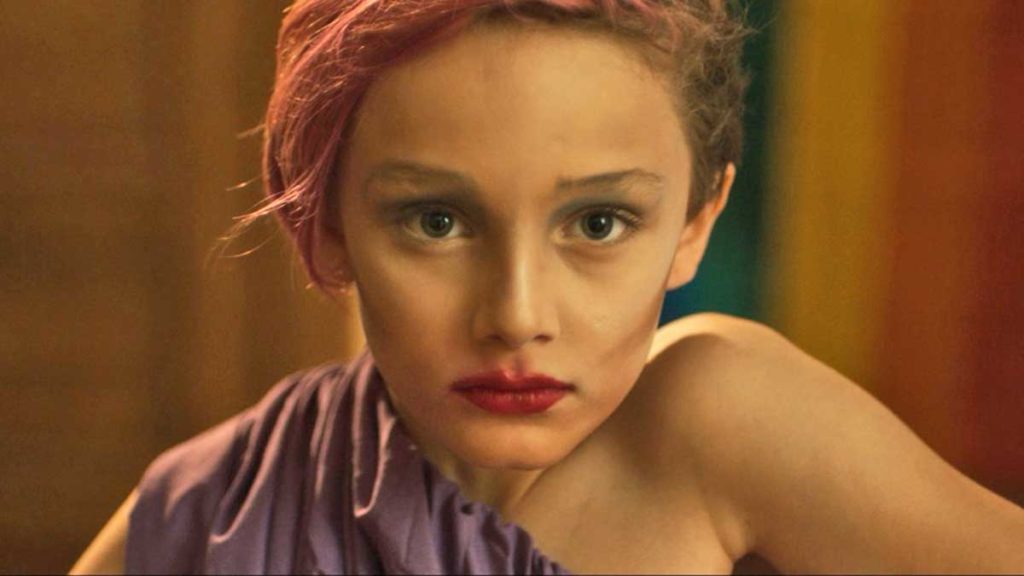Out gay filmmaker Adam Vincent Wright wants to make positive films featuring queer youth. His latest short, “Welcome to the Ball” depicts the budding friendship between Sean (Nemis Quinn Mélançon Golden), a gender-nonconforming kid and Noah (Alexander Reno-Gaus), his Deaf neighbor. The five-minute film played at more than 75 film festivals over the past year and won several prizes, including “Best Short Short” at the 2019 Queens World Film Festival, where it premiered.
Wright, who now lives in Philadelphia, grew up in western Pennsylvania. He did not meet any gay people until he went to college (Emerson, in Boston). He said in a recent phone interview, “The first queer person I saw on TV was on ‘Queer as Folk,’ which is not a great thing for a queer kid to watch. But it was good to see people like me. I knew there was queer content being made, but it wasn’t reaching me.”
This is what inspired Wright to make “Welcome to the Ball” and focus on queer youth. He thought, “What are we going to say to queer children? Loneliness — and not seeing other gay people — is complex, particularly for gay children. Coming out stories are important, but it robs [the subject] of talking about other feelings. We talk about the importance of early childhood education in terms of development, but we don’t talk about early childhood affirmation, and that what you are feeling is correct. Straight, heteronormative kids get that. But kids who are different don’t get that affirmation. And they are also getting the opposite of that — that this [behavior] is incorrect. So, to combat queer teen suicide, homelessness, and addiction, we have to start early.”
“Welcome to the Ball” celebrates an unexpected friendship by showing how Sean and Noah bond by putting on makeup and dresses, and dancing together.
Wright deliberately decided against playing music during the dance scene, which is very effective for creating emotion. He explained, “The silence is so powerful — particularly for people who are hearing. You have to pay attention to the expressions of the actors. And you experience it like someone who is Deaf watching the film.” The film is also subtitled for hearing-impaired viewers when Sean and his mother Crystal (Stephanie C. Kernisan) talk.
The short does not make the friendship between the kids a “savior” relationship, where the hearing child helps the Deaf kid by befriending him. Instead, Wright observes, “The hearing person has the need to be fulfilled, and the Deaf person decides whether to give it to them.”
He added, “We wanted to avoid stereotypes at all costs.”
The filmmaker actively works at promoting and representing underseen groups both in front of and behind the camera. His nonprofit production company, FILMS for a New World (www.ffanw.org) secured a 501(c)(3) last year, and its mission is to have 75% minority involvement in every production. (Wright defines “minority” broadly as female, LGBTQ, or part of a racial, ethnic or religious minority).

He said, “We want to give people who don’t get the opportunities that white male cisgender folks often have to work on our films. To not go below 75% is important. We recognize that people are out there waiting for these opportunities, so we wanted to seek them out.”
At present, his production company is producing its own films, but they hope to get money to fund other filmmakers who have projects that reflect the same goals.
Wright plans to put out a call for talent as he prepares his next film, currently titled “The Last Dance of Sissy Dubois,” which concerns a transgender Philadelphia cabaret singer who returns to her small town after being diagnosed with a brain tumor. She hopes to reconnect with — and make amends with — a man she loved, who lives there with a queer child.
Wright’s ambitions and achievements to date are notable, especially because he never went to film school. The filmmaker received a bachelor’s degree in acting and a master’s degree in theater education and directing. He was working in Los Angeles, as an actor in an “Investigation Discovery” TV show (“Betrayed”) and felt the environment didn’t quite suit him. He decided to shift gears professionally and tell his stories and make films. This led to Wright creating his nonprofit. He recalled, “I knew about directing and seeing the story through, but I didn’t know the technical stuff. I’ve learned that as time has gone by. Now I understand cameras and lenses.”
But, as “Welcome to the Ball” shows, he also understands the characters he presents in his films.

